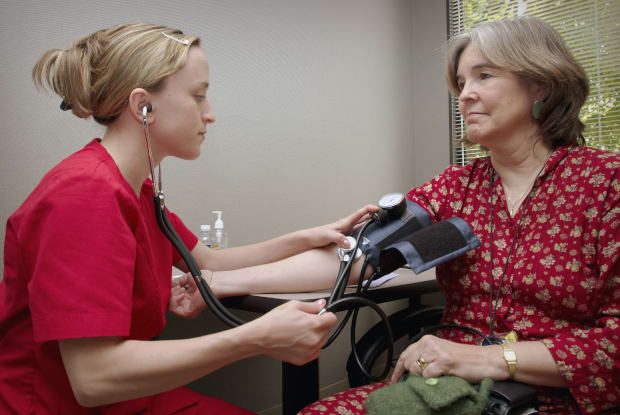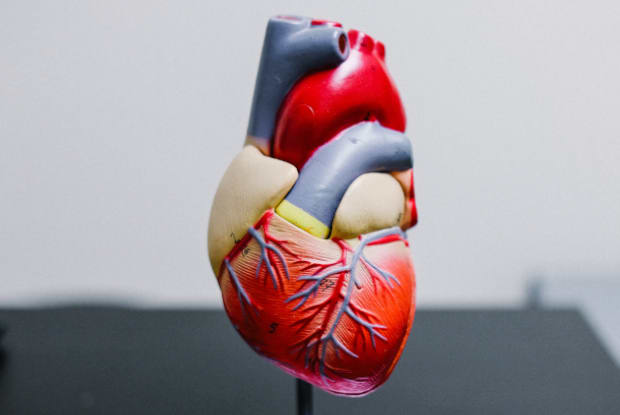Table of Contents
I. Understanding High Blood Pressure
II. Stages of High Blood Pressure
III. Most Common Causes of Increased Blood Pressure
V. Medications for High Blood Pressure
What is High Blood Pressure?
High blood pressure (hypertension) describes a condition where your blood exerts too much pressure against your arterial walls. This condition is dangerous because it can affect you for years without causing any noticeable symptoms. Over time, untreated hypertension can significantly increase your risk of diseases like heart attack, stroke, and dementia.
The good news is that regular checkups can prevent your condition from worsening, and medications like Zestril (lisinopril), Aldactone (spironolactone), and Diovan (valsartan) can help manage symptoms. Doctors generally recommend checking your blood pressure once every three to five years, but those at an increased risk for hypertension may need to attend a blood pressure screening once a year.
A blood pressure reading consists of two numbers. For example, your doctor may tell you that your blood pressure is 120/80 mmHg (millimeters of mercury). The first number is a measure of your systolic blood pressure, which is the pressure in your arteries during heartbeats. The second number is a measure of the pressure in your arteries between beats (diastolic pressure).
If your blood pressure is below 120/80 mmHg, you have normal blood pressure. If your blood pressure increases above this threshold, it is time to think about lifestyle changes or medical treatments to manage your blood pressure and prevent any health complications. High blood pressure is categorized into four stages: Hypertension is commonly caused by an underlying health condition. This type of hypertension is called secondary hypertension and can be caused by kidney disease, thyroid problems, adrenal gland tumors, and obstructive sleep apnea. Birth control pills, pain relievers, cold medicine, and certain prescription medications can also cause secondary hypertension. If your high blood pressure is not caused by an underlying health condition, you have primary hypertension. This type of high blood pressure usually worsens gradually over a longer period of time and does not appear suddenly like secondary hypertension. Your doctor will likely have a record of your blood pressure measurements if you attend regular checkups. However, you should see your doctor soon if you are at an increased risk for hypertension. Risk factors include: If your hypertension is still in the early stages and not immediately threatening your health, lifestyle changes are the best way to control and manage your blood pressure. Things like regular physical exercise, eating a heart-healthy diet, and limiting your alcohol intake cause fewer side effects and can gradually improve your vascular health. If lifestyle changes are not enough for lowering your blood pressure, your doctor may prescribe medication to assist in managing your blood pressure. Common blood pressure medications include angiotensin-converting enzyme (ACE) inhibitors like Zestril (lisinopril), diuretics such as Aldactone (spironolactone), and angiotensin II receptor blockers like Diovan (valsartan). ACE inhibitors lower blood pressure by helping the blood vessels relax, preventing them from narrowing. Diuretics are typically the first type of medication used for hypertension and work by eliminating excess sodium. Finally, angiotensin II receptor blockers work by preventing the action of a chemical that narrows the blood vessels. If you already have a prescription for one of the hypertension drugs mentioned above, visit Canada Drug Warehouse to save on time and money today. High blood pressure can quickly worsen and increase your risk of health complications, but the right treatment plan can keep your blood pressure manageable for years to come. The content in this article is intended for informational purposes only. This website does not provide medical advice. In all circumstances, you should always seek the advice of your physician and/or other qualified health professionals(s) for drug, medical condition, or treatment advice. The content provided on this website is not a substitute for professional medical advice, diagnosis, or treatment.
Stages of High Blood Pressure
Most Common Causes of Increased Blood Pressure

When to See a Doctor about High Blood Pressure
Medications for High Blood Pressure

